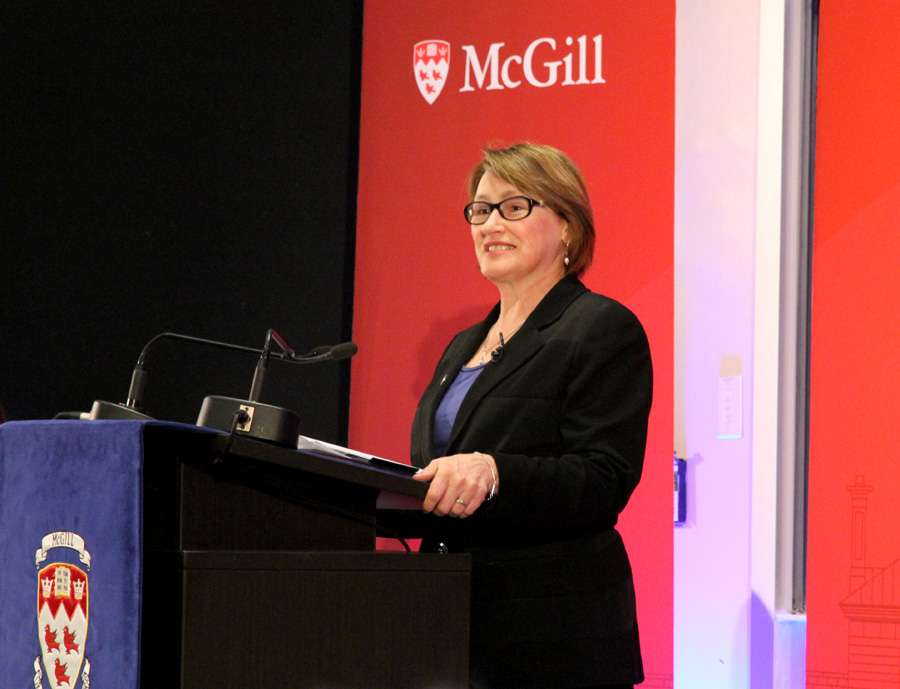Strengthening research, learning environments, and the university’s connection to society is at the forefront of McGill’s priorities for the next five years, according to a March 28 address by Principal Suzanne Fortier.
In front of 180 members of the McGill community, Fortier touched on improvements that are necessary in the areas of student life and learning, research, engagement, and learning organization in addition to space.
“The vision for our university is an expression of how we see our mission today at McGill, building on our strengths and identity and in the context of the 21st century,” she said.
Fortier explained that her priorities developed through her discussions with people and groups from across the university since she began her term as McGill’s 17th principal last September.
“Since arriving on campus, I have had the opportunity to meet with many of you and participate in many activities,” she said “This has helped me crystallize the hopes, the goals and the ambitions of this community.”
Nicolas Magnien, executive co-coordinator at McGill’s Indigenous Studies Community KANATA, applauded Fortier for her engagement with the McGill community.
“As far as I know, no other principal has really ever tried from the beginning of their mandate to learn about indigenous issues, and [Fortier] has,” Magnien said. “She is the only principal that I’ve heard of [who] came up with this [consultation] initiative.”
On the priority of a learning organization, Fortier said she seeks to build a more effective professional environment and improve the university’s physical and virtual campuses.
“Our vision is for a transformed environment, for teaching and learning and for conducting research and scholarship, an environment that is sustainable, accessible, state-of-the-art and healthy,” she said.
The principal also said McGill is exploring the possibility of acquiring the Royal Victoria Hospital in the coming years as a means to address the university’s space deficit of 65,000 square meters.
“Our vision of the Royal [Victoria Hospital] is as a carrefour—a meeting place that connects Quebec and the world,” Fortier said.
Fortier’s address faced criticism from Demilitarize McGill, a student-run group aimed at ending McGill’s alleged connections to military research. Members of Demilitarize McGill protested outside Fortier’s presentation, accusing the administration of lacking transparency.
“[Fortier] says that [the administration] is going to be open and connected and purposeful,” demonstrator Cadence O’Neal, U1 Arts, said. “We question how open McGill really is. We question the purposefulness of the weapons that McGill is trying to develop.”
The protesters accused the administration of receiving over $1.2 million in funds for military research.
In her address, Fortier emphasized the complexity of relationships between the university and its governmental and industrial research partners.
“As we know from our history, [much] of the research that has been done in the past have created improvements, advanced knowledge, and benefited society,” she said. “It is important to make sure that you stay true to your values and principles and it is important as you engage in these collaborations to test and ask yourself the question of whether they do or not.”
On the topic of future challenges, Fortier acknowledged that the university continues to face financial strain.
“We cannot ignore our financial challenges, but we cannot let them define us,” she said. “We will need to evolve while preserving what makes McGill, McGill. Our openness to change, I believe, will determine our future success.”











McGill’s connections to military research are not “alleged”. Contracts between labs and military agencies have been released through Access to Information requests.